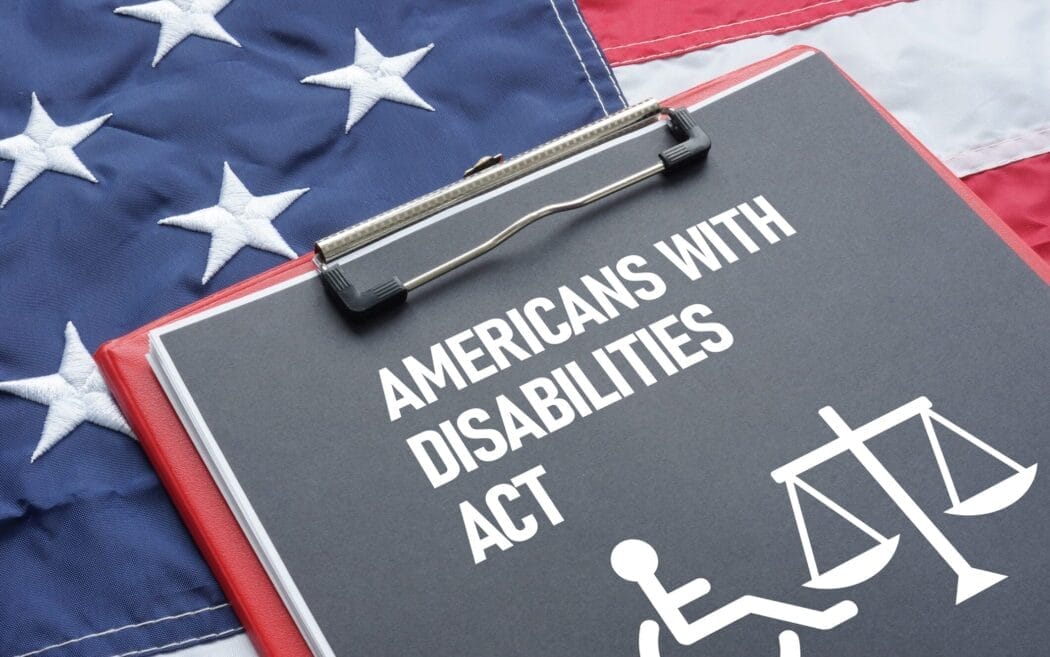By Nolan Klein
Every business with an online presence needs to ensure that its website is accessible to everyone, including individuals with disabilities. Failing to do so can result in an ADA (Americans with Disabilities Act) website lawsuit – a legal challenge increasingly targeting businesses of all sizes. These lawsuits arise when individuals with disabilities claim they cannot access or use a website due to poor accessibility features.
ADA lawsuits can have serious financial and reputational consequences for businesses. My law firm has represented hundreds of businesses in these cases, and we have seen the toll they can take – particularly on small and mid-size business owners. But with proper knowledge and proactive measures (such as utilizing the services of a web accessibility specialist, like Access Design Studio), website owners can prevent these claims, and better defend against them if they occur. This blog explores what ADA website lawsuits are, common compliance violations, ways to prevent lawsuits, and legal strategies to defend your business if faced with an ADA claim.
Understanding ADA Website Lawsuits and Their Rise
An ADA website lawsuit is a legal claim alleging that a business’ website is not accessible to people with disabilities, violating the Americans with Disabilities Act. Title III of the ADA requires businesses to provide equal access to their services, including digital platforms like websites and mobile apps.
ADA website lawsuits have surged in recent years. According to a 2022 report, over 3,000 ADA website accessibility cases were filed in the U.S., representing a nearly 15% increase from the previous year. Many of these lawsuits focus on businesses in industries such as retail, hospitality, and healthcare, where websites often serve as primary points of customer service and interaction.
The rise in ADA lawsuits is driven by factors such as increased awareness of digital accessibility, higher web usage among individuals with disabilities, and advocacy efforts by disability rights organizations – but primarily, by serial litigants who sue as many businesses for noncompliance as they possibly can. For businesses, this means taking accessibility seriously is no longer optional – it’s a mandatory feature of responsible risk management.
Prevention Strategies to Ensure ADA Compliance
Proactively creating an accessible website is the most effective way to prevent ADA lawsuits. Our law firm recommends reputable web access professionals, like Access Design Studio, to assist with each of these critical steps:
1. Conduct an Accessibility Audit
Start by performing a comprehensive accessibility audit of your website. This audit will provide an overview of where your website stands, and what needs to be done to safeguard against the possibility of ADA website lawsuits.
2. Follow WCAG Guidelines
Adhering to WCAG 2.1 Level AA standards ensures your website meets most accessibility requirements. Regularly review updates to the guidelines and incorporate recommended practices into your development process.
3. Provide Text Alternatives
Ensure all non-text content, including images and videos, has appropriate alternatives. For example:
- Add descriptive alt text for images.
- Include captions or transcripts for video and audio content.
4. Optimize Navigation
Make sure all website functions are operable via keyboard shortcuts. Test navigation functionality without using a mouse to identify potential gaps.
5. Test Screen Reader Compatibility
Verify that your website is compatible with screen readers like JAWS or NVDA. This includes clear labeling of buttons and form fields.
6. Train Your Development Team
Educate your web developers and designers on accessibility best practices. Having a knowledgeable team ensures accessibility is built into your website from the ground up.
7. Monitor and Maintain
Accessibility is not a one-time effort. Regularly monitor your website for new accessibility barriers as you add updates or features.
Using an experienced website accessibility professional to assist with each of these factors is the most sure-fire method of mitigating risks.
Legal Defense Strategies for ADA Lawsuits
Despite best efforts, some businesses may still face ADA lawsuits. Here are strategies to consider if your business is sued:
1. Challenge Standing
To bring an ADA lawsuit, the plaintiff must demonstrate they were personally affected by the accessibility issue. You may be able to challenge a lawsuit if the plaintiff lacks standing (e.g., they never attempted to visit your website).
2. Demonstrate Ongoing Efforts
If you can show that your business was actively working toward accessibility compliance (e.g., undergoing audits or implementing updates) before the lawsuit was filed, courts may view your efforts favorably. This is another reason why businesses should reach out to web accessibility experts without any delay.
3. Perform a Remediation Plan
Work with an experienced web accessibility expert to create and implement a remediation plan, before the lawsuit is filed. Courts appreciate businesses taking unprompted corrective action.
4. Seek Legal Expertise
Hire an experienced ADA defense attorney who specializes in accessibility claims. They can help you assess your case and negotiate potential settlements when necessary.
5. Consider Insurance Coverage
Some business liability insurance policies may cover legal fees associated with ADA lawsuits. Consult your insurance provider to determine if you can offset costs.
Build a Compliant Digital Experience Before It’s Too Late
ADA compliance is about avoiding lawsuits, risk management, and creating an accessible digital experience for everyone. By proactively addressing accessibility issues and adhering to WCAG standards, businesses can protect themselves from legal risks while enhancing user experience for visually impaired and blind customers.
If you’re unsure where to start, contact a web accessibility professional like Access Design Studio. The cost of compliance is far less than the potential financial and reputational damage of an ADA lawsuit – and compliance is required by law.
Nolan Klein, Esq. is an attorney focused on defending businesses in ADA lawsuits. He can be found at http://www.nklegal.com/practice-areas.














